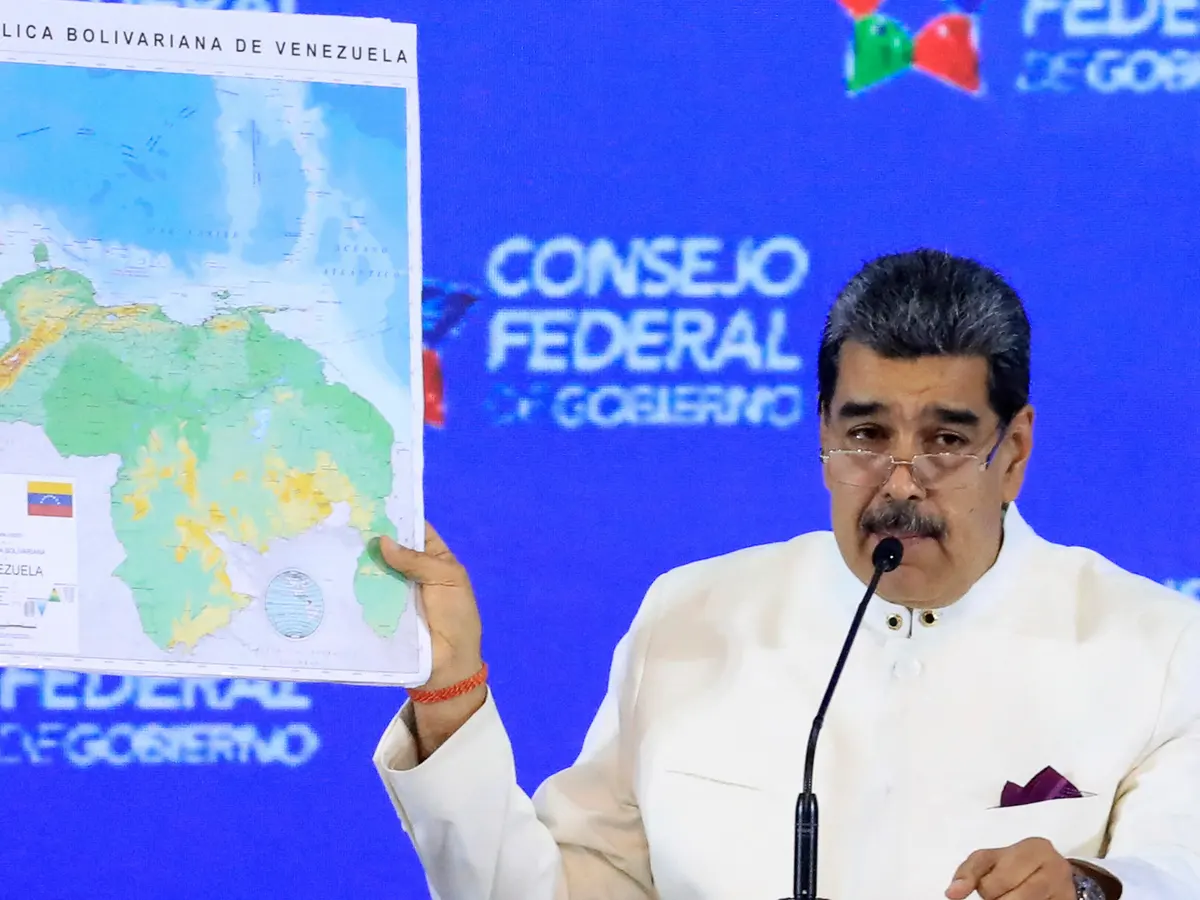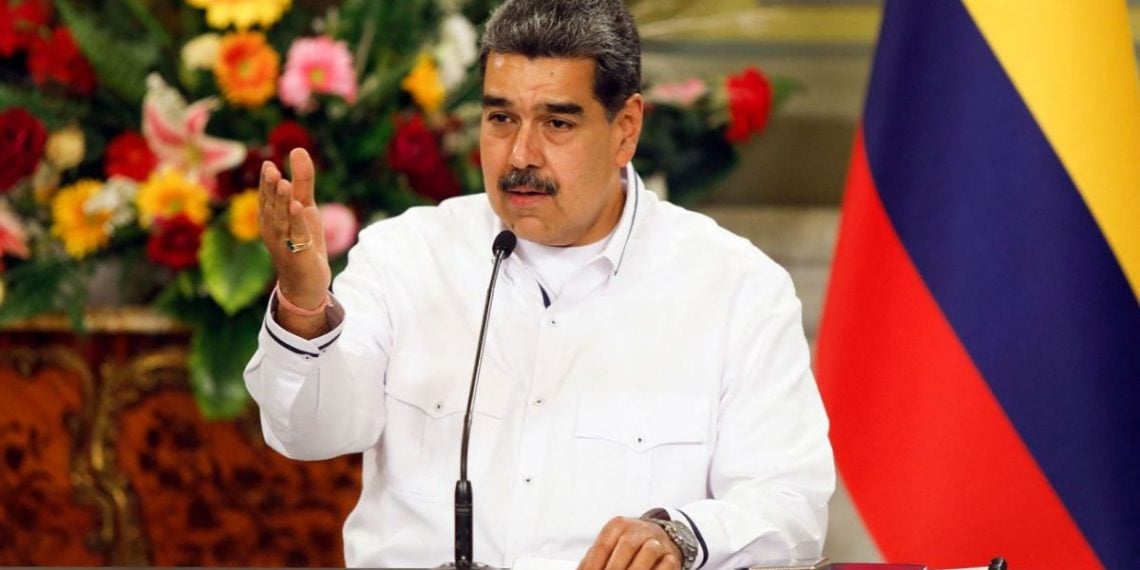President Maduro of Venezuela has stirred tensions by declaring the formation of a new state, “Guayana Esequiba,” following a contentious referendum where voters supported the annexation of land from neighboring Guyana. The disputed territory, the Essequibo region, known for its dense forests and oil wealth, represents approximately two-thirds of Guyana’s national territory.
Despite an international arbitrator’s 1899 ruling establishing current boundaries, Venezuela has persistently contested the land, leading Guyana to perceive the creation of the new state as an “existential threat.”
During a legislative address, President Maduro presented a “new map” of Venezuela, incorporating the disputed territory, and signed a decree establishing the “High Commission for the Defense of Guayana Esequiba.” The announced measures include the approval of exploration licenses for oil, gas, and mining, with the state oil company PDVSA instructed to create a specialized department, “PDVSA-Esequibo,” for immediate management of activities in the region.
Furthermore, Maduro urged legislators to draft a law prohibiting the hiring of companies that have collaborated with Guyana in disputed water areas. Existing companies in the region were given a three-month deadline to vacate. The measures also involve conducting a census among residents of the disputed territory to facilitate the attribution of Venezuelan nationality.

Guyanese President Irfaan Ali described Venezuela’s actions as an “imminent threat” and a “desperate attempt.” Engaging with international allies, including the US, Ali emphasized a “very elaborate cooperation pact” with the US, indicating ongoing defense cooperation discussions. Brazil, bordering the Essequibo region, has deployed troops defensively and sent a team to meet with President Maduro.
The US State Department urged a peaceful resolution to the border dispute, emphasizing the 1899 award and discouraging reliance on referendums for settlement.





